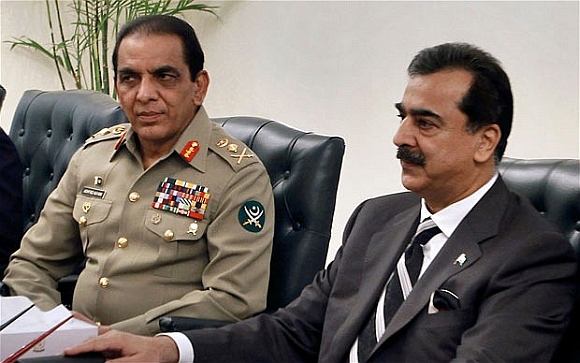As embattled President Asif Ali Zardari returned home from an overnight visit to Dubai, his ally, Prime Minister Yousuf Raza Gilani addressed an emergency session of the National Assembly convened by the ruling coalition where he declared that "either there will be a democracy or dictatorship" in the country.
Ruling coalition lawmakers introduced a resolution in the Parliament which pledges "full confidence and trust" in the political leadership and emphasies that all state institutions must act within the parameters of the constitution, an apparent reference to the influential army, which has been accused of interfering in the political arena.
The resolution would be voted on Monday, the day a full 17-member bench of the Supreme Court will hear the government's response to a six-point "do-or-die" ultimatum given by it to the government to reopen old graft cases against Zardari and others.
The government has so far refused to carry out these orders, prompting the apex court to say that it could take action against Zardari as well as Gilani. The court had described Gilani as "not an honest man".
After convening an emergency meeting of his Corps Commanders yesterday, Army Chief Gen Ashfaq Parvez Kayani has made no further moves even as speculation about a possible military coup ebbed.
The widely held view in political circles is that the army, that has ruled Pakistan for more than half of its 64-year history, was reluctant to directly topple the government in the present scenario.
The possibility of a "constitutional coup" i.e. the Supreme Court taking action against the government that will lead to its ouster, is also being widely debated. As the president returned from his Dubai visit that had triggered questions as to whether he was being pushed out of office, his spokesman Faratullah Babar dismissed reports that Zardari was concerned about his political future. "He is comfortable and perfectly alright," Babar said.











 © 2025
© 2025